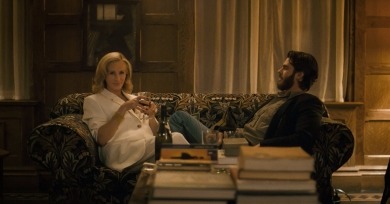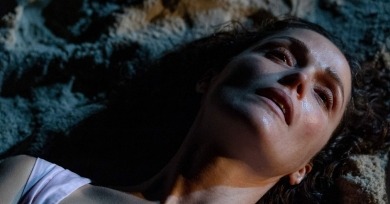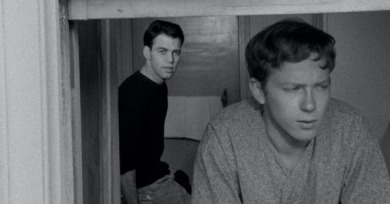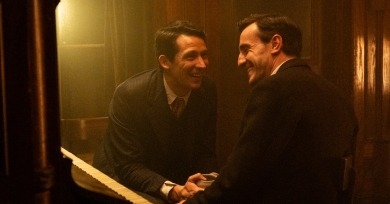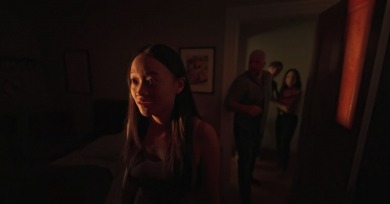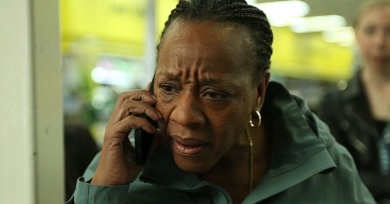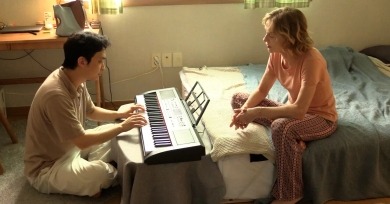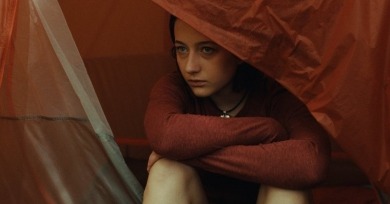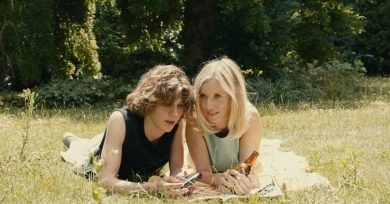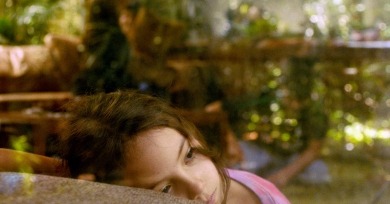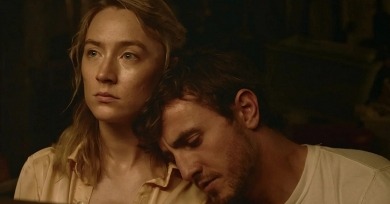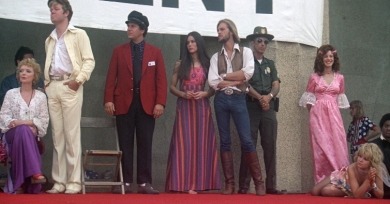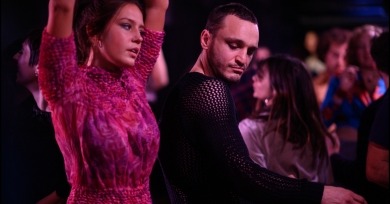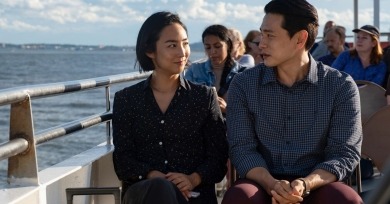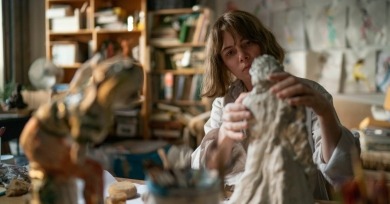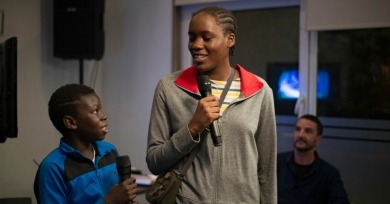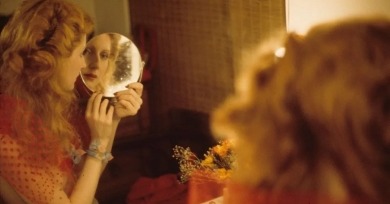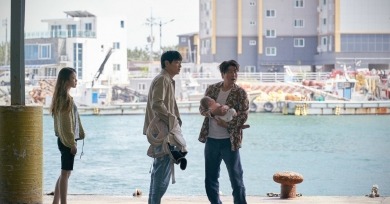Matthew Eng
The grieving man from Mumbai has the downward stare and stooped shoulders of the touch-starved, his back perpetually stiffened into a forbidding carapace. This is Anand, the recessive center of Cactus Pears, Rohan Kanawade's semi-autobiographical first feature.
It is by now a cliche to allege that the films of Luca Guadagnino offer more in the way of surface luxuries than intellectual stimulation, but the chasm is especially apparent in a film that at one point finds Roberts stiffly lecturing on the panopticon.
A grotesque and grimly funny freak-out that unfolds with the hurtling momentum of a runaway train, If I Had Legs I’d Kick You marks the reemergence of its long dormant writer-director.
Making a film about queerness just five years before the decriminalization of homosexuality in Canada necessitated that Secter toe a line and avoid any overt displays of homoeroticism.
The trouble with The History of Sound is not that its makers cannot imagine or depict these characters’ erotic bliss, however short-lived, in anything other than the most conservative terms, but that Hermanus, screenwriter Shattuck, and their leading men offer so little of conviction in its stead.
Soderbergh achieves an effectively fraught air from the jump so that his scenes, even at their stillest, vibrate with the breath-seizing possibility of menace; we are continually and acutely aware that the domestic fracases and solitary activities depicted are being witnessed by eyes without a face.
Under the cover of blackout curtains, a woman jolts herself awake with a hair-raising shout. She catches her breath, but cannot shake off her ring of panic, the quiver and cold sweat of constant fear. This will be one of the more peaceful moments of her day.
In collaboration with Huppert, who has seldom appeared so playful and unguarded, he depicts Iris as supremely attentive and sympathetic to her students, while challenging them to dig deeper and shine a light on the thornier parts of themselves that they tend to keep buried.
The debut feature of writer-director India Donaldson pivots on a young woman’s realization that it is sometimes wisest to keep those we love at an arm’s length.
Last Summer is not so much a provocation or the immersion in perversion that those who know only of the logline and Breillat’s career might be led to believe. This is a master class in emotional precision.
On paper, these characters may sound primed for coarse caricature, these scenarios potentially played for broad laughs. But Avilés tunes her film to a minor key, elegantly and arrestingly whipping up a fine frenzy of mayhem, mundanities, merriment, and doom.
Older actors could have made these characters and their bond more emotionally resonant and credibly worn, marked by a sense of shared history and precious, always dwindling time.
Nashville demonstrated to me not only the unorthodox modes through which character can be communicated in narrative cinema but what a film character can rightfully be, how elision and opacity can captivate and secure an investment in characters about whom we ultimately know so little.
Anaita Wali Zada, a first-time actor who fled Afghanistan in 2021 with her sister after working for several years as a TV presenter and journalist, is often the lone subject of these images. Her composed, stoic face entrances just as it conceals a dull ache for something Donya struggles to name.
The films of Ira Sachs have balanced their slender narratives with richly resided-in evocations of people and milieus, surveying the uneasy and often breakable bonds between lovers, companions, and kin. But Passages is the first of his dramas whose leanness feels effectively and exhilaratingly taut.
This is a film about two people contemplating the possibilities of what could have been and what still might be, but it is also about the electric charge and covert forces that draw two bodies and souls together.
The raw material of the film is the daily, soul-sucking minutiae that comes with choosing and devoting oneself to the artist life in a country that cannot nor will not sustain such endeavors, rendering them ever more impractical without competitive grants, family money, or other such safety nets.
Their rage at the divisions and injustices of the world has only been amplified, but they have faltered at dramatizing how such divisions and injustices might color the more mundane, less sensational circumstances of those experiencing these crises first-hand.
Little Richard: I Am Everything, The Disappearance of Shere Hite, Going to Mars: The Nikki Giovanni Project, The Stroll, A Still Small Voice
Try as Kore-eda might, the questions the film raises cannot be fenced off from the global fight for reproductive justice, a battle from which this politically evasive film has been totally sequestered.

